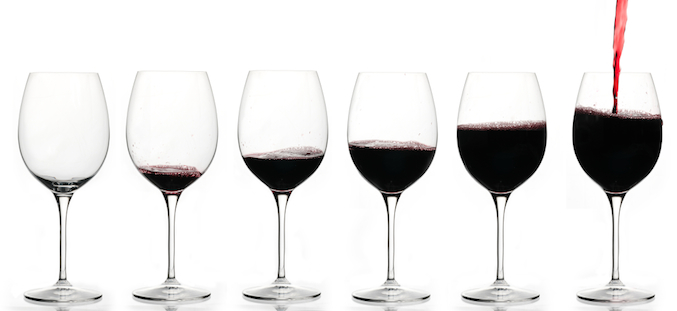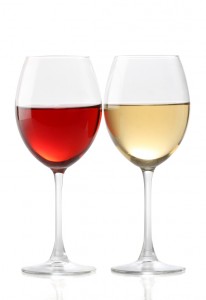A new pill that reduces the desire to drink alcohol is set to be offered to women who drink around half a bottle of wine a night. We speak to Dr Paul Richardson, a liver specialist at The Royal Hospital, Liverpool about what this means for drinkers
There are currently drugs out there that reduce alcohol consumption but you have to go teetotal for them to work. A new drug, called nalmefene (its brand name is Selincro) is the first of its kind that allows drinkers to have a couple of glasses but is proven to help curb their desire to drink any more in one session.
Under draft guidelines from the National Institute of Clinical Excellence (NICE) – the UK body that makes recommendations for how doctors prescribe medical treatment – set to come into place in November, the pill can be prescribed by GPs to people with mild alcohol dependency. According to NICE, it can be prescribed to women who drink just half a bottle of wine a night and men who drink around three pints daily.

Q: Who should consider taking the alcohol pill?
To set the scene, liver disease has increased dramatically in women and in the 15 years I have been working with liver disease, I have seen it in younger and younger women including deaths in women in their 20s. Alcohol is the biggest driver for liver disease in the UK and accounts for about 60 per cent of all liver related deaths.
But that’s not the full picture. We have to look at other illnesses that can be attributed to alcohol too including high blood pressure and brain diseases (we see patients with cognitive impairment in their 40s due to their alcohol intake) as well as excessive tiredness, excessive tiredness and relationship problems. As doctors we’re trying to find a way to stop people’s drinking turning into such severe illness.
The new drug, nalmefene is useful to patients who have mild alcohol dependency who may progress to a more severe end of the spectrum to organ damage and more severe alcoholism. It’s an opportunity to help curb people’s problem drinking before it becomes illness.
The new pill would not be for binge drinkers who are taking in enormous amounts of alcohol at the weekend or for those with end stage liver disease and not for those who fit the stereotype of the classic alcoholic drinking from morning to night and getting the shakes when they don’t get a drink. The kind of person namlefene would suit is that person that is showing the very early signs of alcohol-related problems, having half a bottle of wine a night or a few pints daily – which is common – and be at risk of developing further problems later down the line.
How does the new alcohol pill curb my desire to have more alcohol after a couple of drinks?
Alcohol and the desire to drink it are related to reward systems in the brain which are governed by a neurotransmitter called dopamine, responsible for the feeling of pleasure we get from addictive pursuits such as drinking alcohol. We drink alcohol and dopamine released makes us feel good so we want to drink more to get more of that feeling. But drinking alcohol is also intoxicating and that creates a dampening in that natural reward system in the brain so after a couple of drinks people start to lose a degree of control over their drinking. Nalmefene, the new alcohol pill, works on that reward system and helps restore a degree of control to the drinker over their alcohol intake. This means that after a couple of drinks you might not want to continue drinking because you have more control over your choices than you would normally, making it easier to say no to a third and fourth drink and so on.
What are the long-term effects of the drug?
We don’t know. The drug hasn’t been studied over decades so that kind of information isn’t available.
What are the side effects?
They tend to be mild and include nausea and sleep disturbance but it’s generally well tolerated [other side effects may include headaches and dizziness].
How effective is it in reducing alcohol intake, really?
Looking overall at the data, it probably reduces alcohol intake by about ten per cent. Having said that, some people respond very well to it and see their drinking reduced by up to 60 per cent, which makes a big difference to their health.
Can bigger drinkers take it, say those drinking more than half a bottle a day?
That kind of level of drinking is associated with more than mild dependency so such drinkers wouldn’t be the best candidates for the new pill.
If my GP prescribes it for me will he/she require me to go to AA meetings as well?
Not necessarily AA. It simply has to be prescribed with some kind of psycho-social system in place. In other words, with some kind of support system to allow the drinker to be able to talk to someone face to face regularly. In our clinics, patients are offered drinking advice regularly in the same way they would be if they’re trying to give up smoking.
What’s the dosage?
Other alcohol medications we have now are based around abstinence and taken daily – but you can’t drink at all while taking them. Nalmefene, the new drug, is different in that patients take it on the day that they know they are going to be drinking to help curb their alcohol intake. They don’t necessarily need to take it every day unless they are drinking every day.
Alcohol dependency is diagnosed if people who have had three out of these six symptoms at the same time in the last year:
- A strong desire to take alcohol
- Difficulties in controlling the use of alcohol
- Neglect of hobbies due to alcohol use
- Persisting with alcohol use despite seeing it harm themselves
- Tolerance to the effects of alcohol
- Withdrawal symptoms when you stop
RELATED CONTENT:
Want to drink less? Pour half a glass at a time
Like this article? Sign up to our newsletter to get more articles like this delivered straight to your inbox.






















































